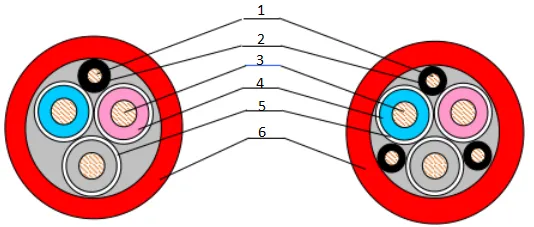Nov . 18, 2024 13:54 Back to list
Durable Cast Steel Valves for Reliable Industrial Applications and Performance
The Importance of Cast Steel Valves in Industrial Applications
Cast steel valves are integral components in various industrial processes, known for their durability, strength, and versatility. As industries move towards more robust and efficient systems, understanding the role and benefits of cast steel valves becomes essential for engineers, procurement specialists, and operations managers.
What are Cast Steel Valves?
Cast steel valves are made from steel that has been melted and poured into molds to form the body of the valve. This manufacturing process differs from wrought steel, which involves shaping solid blocks of steel. The casting process allows for the creation of complex shapes and sizes, making cast steel valves highly adaptable to different industrial needs.
They are widely used in numerous industries, including oil and gas, chemical processing, water treatment, power generation, and HVAC systems. The primary function of these valves is to regulate, direct, or control the flow of fluids and gases within a system, ensuring safety and operational efficiency.
Advantages of Cast Steel Valves
1. High Strength and Durability Cast steel is renowned for its high strength-to-weight ratio. It can withstand high pressure and temperature conditions, making it an ideal choice for critical applications that demand reliability. The material's toughness also contributes to its longevity, reducing the frequency of replacements and maintenance.
2. Corrosion Resistance While cast steel inherently lacks the corrosion-resistant properties of some metals, it can be treated or coated to resist industrial chemicals and moisture. This adaptability means cast steel valves can be customized for various environments, from corrosive chemical processing facilities to high-temperature steam systems.
3. Versatility in Design The casting process allows for a range of designs, including various styles such as gate, globe, ball, and check valves. This versatility enables engineers to select the optimal valve type for specific applications, ensuring maximum efficiency and control.
4. Cost-Effectiveness Compared to other materials, cast steel valves often provide a more economical solution without compromising on quality or performance. Their durability and long service life further enhance their cost-effectiveness, reducing overall lifecycle costs.
cast steel valve

Applications of Cast Steel Valves
Cast steel valves find applications across multiple sectors due to their robust characteristics. In the oil and gas industry, for instance, they play critical roles in upstream exploration and downstream refining processes. Their ability to function under high pressures and temperatures makes them suitable for controlling the flow of crude oil and natural gas.
In chemical processing, cast steel valves ensure the safe handling of aggressive chemicals and corrosive substances. Their reliability is vital in preventing leaks and ensuring compliance with safety regulations.
Water treatment facilities also benefit from cast steel valves, used in various stages of water purification and waste management. Their capacity to handle different flow rates and pressures is essential for optimizing treatment processes.
Future Trends and Innovations
As industries continue to evolve, so does the technology behind cast steel valves. Advances in manufacturing techniques, such as additive manufacturing and improved casting methods, are leading to the production of more complex and efficient valve designs. Additionally, the integration of smart technologies is becoming more prevalent. Smart valves equipped with sensors and control systems can provide real-time data on flow rates, pressure levels, and valve performance, enhancing operational efficiency and predictive maintenance capabilities.
Furthermore, as sustainability becomes a key focus for industries worldwide, the push for environmentally friendly materials and processes is growing. Cast steel valves are being developed with lower carbon footprints, utilizing recycled materials, and innovative treatments to enhance their performance while minimizing environmental impact.
Conclusion
In conclusion, cast steel valves represent a critical component in modern industrial applications, offering a combination of strength, durability, and versatility. Their ability to adapt to various environments and processes makes them a favored choice among engineers and industrial operators. As technology continues to advance, the future of cast steel valves looks promising, poised to enhance efficiency and sustainability in countless applications. Understanding their significance not only aids in the selection of the right components for specific needs but also contributes to the overall success and safety of industrial operations.
Share